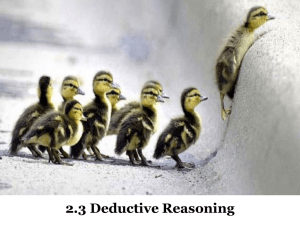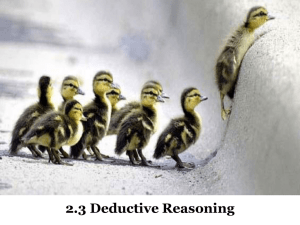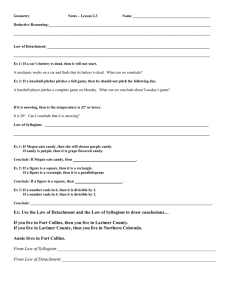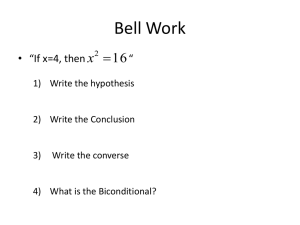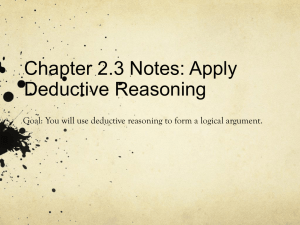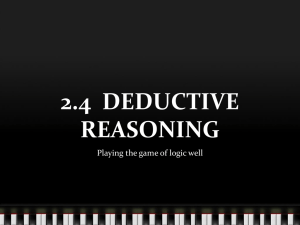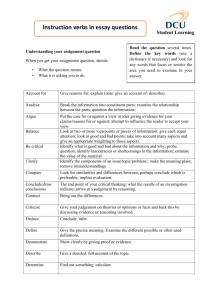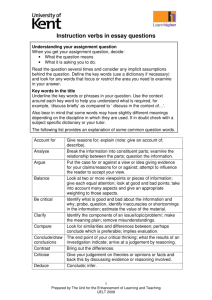2.3 Deductive Reasoning
advertisement
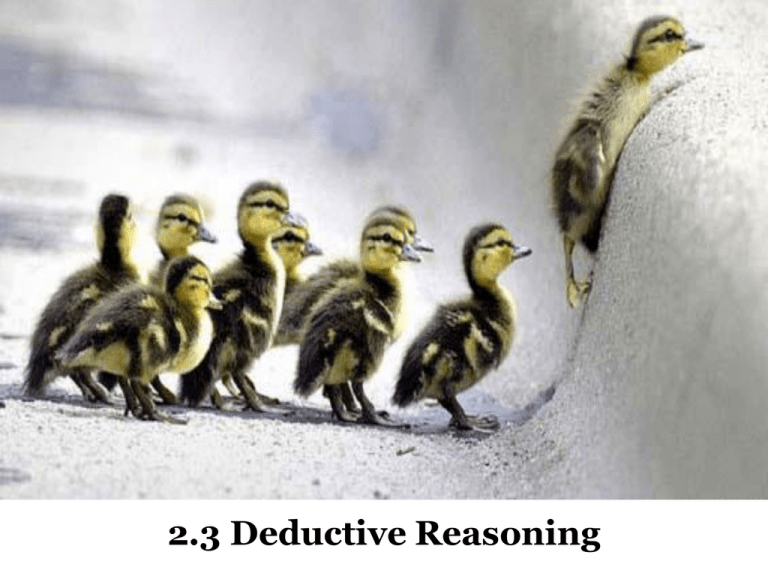
2.3 Deductive Reasoning Types of Reasoning Find the next two terms of the pattern: 1, 3, 7, 13, 21, … Inductive reasoning – observing what has happened and making a conjecture about what will happen. Deductive Reasoning (logical reasoning): the process of reasoning logically from given statements (ex: definition and theorems) to a conclusion. If the given statements are true in the situation, then the conclusion is also true. Ex: a physician sees a patient with certain symptoms and uses that information to diagnose the illness Law of Detachment Ex 1: If a car’s battery is dead, then it will not start. A mechanic works on a car and finds that its battery is dead. What can we conclude? Ex 2: If a baseball pitcher pitches a full game, then he will not pitch the following day. A baseball player pitches a complete game on Monday. What can we conclude about Tuesday’s game? Law of Detachment: If a conditional is true and its hypothesis is true, then its conclusion is true. Symbolic: If p q is a true statement and p is true, then q is true. If it is snowing, then is the temperature is 32o or lower. It is 20o. Can I conclude that it is snowing? Law of Syllogism Law of Syllogism: If p is a true statement. q and q r are true statements, then p r Ex 1: If Megan eats candy, then she will choose purple candy. If candy is purple, then it is grape flavored candy. Conclude: If Megan eats candy, then . Ex 2: If a figure is a square, then it is a rectangle. If a figure is a rectangle, then it is a parallelogram. Conclude: If a figure is a square, then Ex 3: If a number ends in 6, then it is divisible by 2. If a number ends in 4, then it is divisible by 2. Conclude: impossible – the conclusion of one statement is not the hypothesis of the other statement . All Together Ex: Use the Law of Detachment and the Law of Syllogism to draw conclusions… If you live in Fort Collins, then you live in Larimer County. If you live in Larimer County, then you live in Northern Colorado. Annie lives in Fort Collins. HW: p. 96 #2-20 even, 32, 40 2.3 Deductive Reasoning
